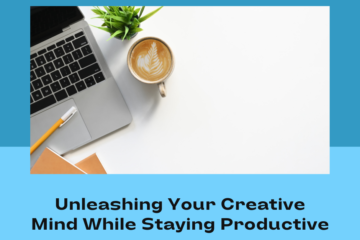
Introduction
Every day of life is a chance to have some learning experience, and not just in school, workshops, or books. Are you able to catch them? The key to a happy life may be a willingness to sift through everyday events and find special lessons in them. If you’re tired of the same old tips, here’s a different way to change the way you learn in your everyday life.
Curiosity: The Fuel for Learning Experience
In this age of too much knowledge, when you can just Google a question to find the answer, asking questions has become something of a lost art. But a never-ending desire to learn and understand can be your most useful tool for growth. Here, we go into more detail about the important things that make interest the key to growth.
Embrace the Unexpected: The Value of Openness
You’ve heard the phrase “Expect the unexpected,” but what if you could do one better? What if you could accept what you didn’t expect? Many of life’s best lessons come from things that don’t go as planned. These are the times that shake us out of our daily routines and ways of thinking, giving us a chance to learn something new or see something we’ve seen before in a different way.
For example, think about being stuck in traffic. Your first thought might be one of anger or frustration. But what if, instead of focusing on the bad, you used the extra time to listen to a podcast that taught you something or watch the city as the sun went down? When we let ourselves be surprised, we turn things that might seem boring or hard into a tapestry of learning chances.
The key is to give up control, or at least the idea that we have power. When we let go of rigid expectations and open ourselves up to the many events that life has to offer, we enrich our inner world.
Questioning the Norms: A Deeper Dive into Inquiry
When you question rules, you’re not just trying to be different for the sake of it; you’re trying to learn more about the world around you. Most of us have been taught to be happy with how things are. Whether it’s culture norms, work procedures, or social etiquette, these “rules” are often accepted without question.
But instead of just asking the usual questions, it can be very powerful to question the questions themselves. Instead of just asking “What are we doing?” dig deeper by asking “Why are we doing it this way?” and “Could there be a better way to do it?” This rule applies to everything, from the way you do your job to the way you act in social situations to the way you think and feel about things.
For example, if you’re in a meeting and everyone is following a set schedule, you might ask, “Is this the best way to use our time?” “Is there a different way to do this that might work better?” These questions could lead to more productive and useful conversations that lead to real change.
By getting in the habit of asking “Why?” and “Why not?” You’re not just gathering knowledge; you’re also practicing analytical and critical thinking skills that will help you grow in every part of your life. So, don’t just be interested; be curiously introspective, curiously analytical, and curiously daring.
To grow as a person, you don’t have to find all the answers; you just have to ask the right questions. By being open to the unexpected and asking why things are the way they are, you will grow in ways you never thought possible.
The Art of Attentiveness
Being truly alert has become a rare trait in a world full of things to do. But being attentive isn’t just a nice trait; it’s a necessary one for anyone who wants to grow and improve in a useful way. Here, we talk more about how the art of paying attention can change how you relate to the world and yourself.
Don’t Just Look; Observe: From Passive to Active Engagement
Observing is an active thing to do. The difference between the two is how deeply you focus on what you’re feeling and how aware you are of it. When you just look at something, you don’t really care about it. But in order to be an observer, you have to look at the details of what you see.
Take a simple thing like going to a meeting as an example. You can ‘look’ at your coworkers and hear what they are saying. But to “observe” means to pick up on nonverbal cues, figure out how things work, and get a sense of the mood of the place as a whole. You’ll be able to tell who is interested in the talk and who isn’t. By watching, you go beyond the obvious and gain insights that could be crucial to how you handle a situation or what you learn from it.
When you watch something, it sparks your natural curiosity and makes you wonder why things are the way they are. It helps you see patterns, spot chances, and pick up on subtle things you wouldn’t notice otherwise. Basically, when you watch, you interact with your surroundings in a deep and meaningful way, which improves your learning.
Emotional Intelligence: Inner Observation
Emotional intelligence is the skill of paying attention to yourself. It’s not enough to know what makes someone else tick; you also need to know how your own mind and emotions work. You can learn a lot from your responses, feelings, and emotions if you are aware enough to notice them and smart enough to understand them.
Let’s say you’re working on a project that isn’t going the way you thought it would. You might be upset and worried. A person who is mentally intelligent won’t just stop at how they feel. They’ll try to figure out why they feel this way. Is it that they don’t want to fail? Is it worry about letting other people down? Or did the joy turn sour because of things that didn’t go as planned? Your feelings are like signs that point to greater truths about who you are. If you can figure out what they mean, you can learn how to handle similar scenarios better in the future.
Emotional intelligence makes you more empathetic, which makes you more aware of how other people are feeling. When you know how you feel, you can better understand how other people feel. This makes you a better boss, partner, and friend.
The art of paying attention is a skill with many parts. It includes both observing the outside world and understanding your own feelings. By teaching yourself to not just “look,” but to “observe,” and by becoming emotionally intelligent, you give yourself the tools you need to get more out of every event and learn more from them. Whether you’re handling social situations, making decisions, or trying to figure out how you feel, paying attention gives you the information you need to act wisely and with understanding.
Your Wisdom Cache: Journaling and More

When it comes to learning from the things you do every day, it’s important to write down what you’ve learned. Keeping a journal can help you make a “Wisdom cache,” which is a valuable store of your own thoughts and notes. This can be a very important part of your quest. Let’s look at how this practice can make your life much better.
The Power of the Pen: Making the Intangible Tangible
Putting pen to paper or fingers to computer can change a person in some way. When you write, you make your ideas clear and give shape to what might have stayed a cloud of ideas. By doing this, you give your thoughts more weight and make them much easier to come back to, think about, and use.
But a Wisdom Cache isn’t just a book or a diary; it’s a living record of how your ideas about the world change over time. It’s where you write down the things you’ve noticed during your practice of paying attention, the emotional cues you’ve picked up on, and the different pieces of knowledge you’ve put together throughout the day. This isn’t just a place to vent or keep track of what you did; it’s where you figure out what you can learn from your daily interactions, choices, and even emotional responses.
Also, your Wisdom Cache is a very helpful tool when you face problems. Having trouble making a choice? Look at your old posts to see how you solved similar problems in the past. Don’t have any ideas? Your own words, written when you are feeling clear, can give you the spark of energy you need.
Digital or Analog? The Medium Matters Less Than the Habit
In our tech-savvy world, there are many ways to get your Wisdom Cache. It doesn’t matter if it’s a leather-bound notebook, a digital app like Evernote, or voice memos on your phone. What’s important is that you keep it up-to-date consistently.
For people who like the feeling of writing with their hands, a real journal can become a treasured thing. Opening it and looking at the handwritten pages can be a grounding practice in and of itself. Digital platforms have search tools and other features that make it easy for tech-savvy people to look up old comments. Voice memos are great for people who would rather talk than write because they capture the nuances and feelings that sometimes can’t be put into words.
The Wisdom Cache that you commit to changing often is the most useful one. When you do this often, it goes from being a “good idea” to a powerful habit. Over time, if you’re consistent about writing down your growing knowledge, you’ll build up a strong resource that you can draw on whenever you want to understand something, get some direction, or just remember how far you’ve come on your journey of personal growth.
Your Wisdom Cache is more than just a record of your life. It is a living, breathing guide for your mental and emotional growth. By making the intangible real, you not only capture your knowledge but also set the stage for future growth and a deeper understanding. Keeping this cache up-to-date is more important than the medium you choose. This makes it an essential tool in your quest to keep learning from every day’s events.
The Risky Business of Change
Personal growth is the same thing as accepting change, which is a fact that comes with its own paradoxes and subtleties. Let’s learn more about what change is, why it’s always uncomfortable, and how even the smallest moves can lead to big changes.
The Paradox of Comfort: The Cozy Trap
We have a hard-wired need for safety. From the point of view of evolution, comfort means safety, less energy use, and a more predictable result. But in the modern world, this can turn into a crippling fear of the unknown that keeps us from taking the steps we need to take to grow and learn.
Comfort zones are more than just physical places or routines; they are mental constructs that can turn into invisible prisons. They make you feel safe, but in the background, they take away your ability to change, create, and really live. The catch-22 is that comfort feels good, but it often stands in the way of positive change more than anything else. To put it simply, the comfort you want can turn into the pain you miss.
Small Shifts, Big Gains: The Domino Effect of Minor Adjustments

One of the most common mistakes people make about change is thinking that it has to be huge to be important. We think that to really change, we have to make big changes in our lives. In fact, even small changes to your daily routine can have a big effect on your outlook, attitude, and health as a whole.
Think about something as simple as taking a different route to work. This small change can give you a new view, new people to meet, and maybe even a new coffee shop that you go to when you need motivation. Every new person you meet or thing you notice adds a brushstroke to your life, giving it color and depth you wouldn’t have otherwise.
Small changes can also be used as low-risk projects that give you useful information. Every time you make a change, you learn what works, what doesn’t, and what’s worth growing. With each small change, you learn more and feel more ready and confident to take on bigger tasks. It’s like a snowball effect; these small changes can build on each other and lead to big changes in your life before you even notice.
The book “Risky Business of Change” is about the conflict between being comfortable and needing to grow. The first step toward getting free is to realize that comfort zones can both make us feel good and hold us back. Also, the “Small Shifts, Big Gains” philosophy can change the way you think about personal growth in a big way. By seeing the promise in small changes, you give yourself the freedom to take risks, keep learning, and change in both small and big ways.
Conclusion
In a world that puts a lot of value on “knowing,” “learning” is the real prize. By keeping an open mind, being attentive, keeping a stash of knowledge, and being willing to change, you can turn your daily routine into a series of enlightening experiences. And that’s a good way to learn something.
So, are you ready to transform your learning experience in an unconventional way?
Start today, because wisdom waits for no one.



0 Comments